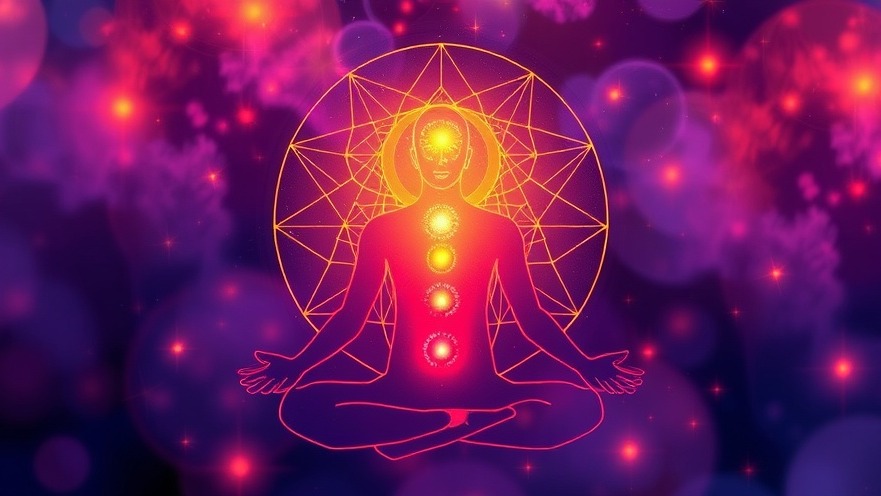
A Quiet Revolution in Healing
What if your anxiety, digestion troubles, brain fog, and constant exhaustion weren’t signs that something’s wrong with you—but that your daily rhythms are out of sync with nature?
That’s the question Ayurvedic practitioners like Lexa Churnin and Dr. Aret are answering daily—not with prescriptions, but with powerful routines rooted in ancient wisdom.
For them, wellness isn’t about chasing perfection or the latest biohack. It’s about returning to your natural state.
Ayurveda, often called the “science of life,” is more than herbal teas and dosha quizzes. It’s a holistic, time-tested system that sees your physical, emotional, and mental health as intimately connected.
As the modern world turns toward root-cause healing and preventative care, many are asking: What can Ayurveda offer me today, right now, in the middle of my hectic life?
Let’s explore what today’s seasoned practitioners really want you to understand—and how it could transform your wellness journey.
Ancient Wisdom, Modern Lives
Ayurveda dates back over 3,000 years to ancient India.
Its foundational texts—like the Charaka Samhita—outline systems of diet, lifestyle, herbal medicine, and emotional care.
At its core is the belief that we each have a unique constitution (prakriti) made up of three doshas: Vata (air/space), Pitta (fire/water), and Kapha (earth/water).
“When the doshas fall out of balance, that’s when symptoms appear,” says Dr. Aret. “Your job isn’t to fix yourself—it’s to listen to what your body is saying.”
This personalized approach sets Ayurveda apart from one-size-fits-all wellness fads.
From Crisis to Clarity
For Lexa Churnin, her journey started when her infant son had chronic ear infections.
“Antibiotics weren’t working anymore,” she shares. “An Ayurvedic mentor helped me change his diet, use warming herbs and oils—and the infections stopped.”
That experience changed her life.
“I realized Ayurveda wasn’t just about fixing illness,” she says. “It was about preventing it—by living in rhythm with who you really are.”
Milestones from the Field
Dr. Aret was raised in a lineage of Ayurvedic doctors in India.
His father told him, “You won’t understand the body if you only study biology. You need Ayurveda to understand why illness happens.”
That “why” became the core of his career. Today, Dr. Aret blends Ayurvedic diagnostics like pulse and tongue reading with Western tools like lab results and dietary tracking.
Lexa, meanwhile, saw patterns emerge as a yoga therapist.
“You can see doshic imbalances in how people breathe, how they hold tension, how they speak,” she says. “It’s like a roadmap.”

Insights for Everyday Health
Both practitioners agree: digestion is the foundation of health.
“If your agni—your digestive fire—is weak, nothing else works,” Lexa explains.
This is why warm, cooked meals are emphasized. Cold smoothies and raw salads might be “clean,” but they can weaken digestion—especially when you're stressed or tired.
Another insight: symptoms are not failures.
“A lot of people feel shame around fatigue, bloating, or mood swings,” says Dr. Aret. “But those are just messages. Ayurveda teaches you how to read them.”
What Makes Ayurveda Different
Individualized Healing
What works for one person might worsen symptoms in another.
Ayurveda offers protocols based on your constitution, not generic trends.
Nourishment Over Deprivation
It’s not about juice cleanses or extreme detoxing.
Instead, Ayurveda encourages stability: warm meals, oil massage, good sleep, and connection to nature.
Mind-Body-Spirit Integration
Emotions, energy, and spiritual awareness are seen as essential to health—not separate from it.
As Lexa puts it, “Ayurveda doesn’t separate your stress from your stomachache—they’re the same thread.”

Simple Tips You Can Try Today
You don’t need an Ayurvedic certification to start seeing results.
Here are a few things Lexa and Dr. Aret suggest:
1. Wake up and scrape your tongue
It clears toxins, stimulates digestion, and helps you feel grounded.
2. Drink warm water first thing
Skip the iced coffee. Your digestion prefers warmth.
3. Eat your largest meal at lunch
Midday is when your digestive fire is strongest. Keep dinner light.
4. Oil your skin before your shower
Self-massage with sesame or almond oil calms your nerves and supports immunity.
5. Pay attention to how you feel after eating
Symptoms like gas, heaviness, or cravings are signals. Adjust accordingly.
6. Sleep by 10 PM, wake by sunrise
It regulates hormones, digestion, and mental clarity.
Start small. Choose one ritual and stick with it for a week. Notice how you feel.
What the Experts Say
“Sometimes, the tiniest shifts in your routine can make the biggest difference in how you feel.”
— Lexa Churnin
“The body wants to heal. You just have to stop getting in the way.”
— Dr. Aret
These aren’t just poetic ideas. They’re lived truths from decades of client care, observation, and healing.
Ayurveda isn’t a trend—it’s a return to balance.
A Healing Invitation
At its core, Ayurveda is an invitation.
It invites you to slow down. To observe without judgment. To care for your body like it’s something sacred—not something broken.
The next step? You don’t need to book a flight to India or overhaul your kitchen.
You just need to start. With rhythm. With awareness. With one act of kindness to your own body.
Ayurveda isn’t about doing more. It’s about remembering what it feels like to be in sync—with nature, with your body, and with your life.
 Add Row
Add Row  Add
Add 





Write A Comment